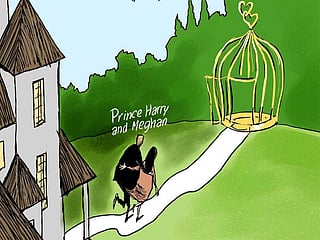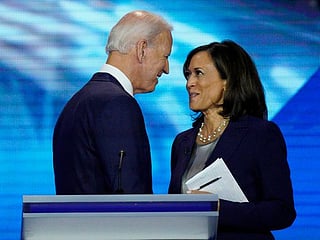Anwar Gargash: UAE's Israel embassy to be in Tel Aviv
Minister of State for Foreign Affairs says 'it is going to be a warm peace'

Dubai: UAE Minister of State for Foreign Affairs Dr Anwar Gargash has said that the development of a relationship with Israel started off informally, before a firm UAE policy emerged. Speaking in an online interview with the Atlantic Council broadcast live on Zoom, he said: “We saw the region needs a strategic breakthrough. If something is in the interest of the UAE, we will pursue it. It was more non-political. We started by going to conventions.
"Then we went into Irena. It was clear that to have fighting chance, we should accept that Israel should be able to have a delegation ...then there was the decision to invite Israel to Expo 2020. It was natural that we were going to look at normalising relations.”
Gargash indicated that several other Arab countries could also be considering ties with Israel. He also clearly said that any UAE embassy in Israel will be in Tel Aviv.
F-35 fighter jets
Gargash noted that the UAE has a legitimate request to acquire the F-35 fighter jet and its agreement to normalise ties with Israel should remove “any hurdle” for the United States to proceed with the sale. “We have legitimate requests that are there. We ought to get them ... the whole idea of a state of belligerency or war with Israel no longer exists.”
Geo-strategic space
Gargash said that UAE was one of the early Gulf states to come with a firm rejection of annexation of Palestinian territories. He said that His Highness Sheikh Mohamed Bin Zayed Al Nahyan, Crown Prince of Abu Dhabi and Deputy Supreme Commander of the UAE Armed Forces, has a strategic view. “You don’t get a big opportunity unless you take risks. [The deal with Israel] will open up geo-strategic space and opportunity space. UAE wants to reaffirm its global position ... You can do this by maintaining an exclusive view of the world.
UAE economy is bigger than Israel’s
Asked what were the most pressing needs in the UAE in order to go for this deal, Gargash noted: “The tangible thing was suspension of annexation. Beyond the tangible, it [was about] opening opportunities. Our economy is bigger than that of Israel, so Israel will have opportunities. We will benefit from the technological prowess of Israelis in certain areas..and they will benefit from the dynamic nature of the UAE economy. This is going to be a warm peace, as unlike Jordan and Egypt, we have not fought with Israel.”
Palestinian issue
Gargash said that Palestinians felt their own talks with Israel were one-sided and they had their reasons. “Our position was negotiate. Don’t leave the negotiations table. Effective change on the ground affects the deal. Annexation was a real threat on the ground. The ones who will decide the final shape of whatever emerges will be Israelis and Palestinians.
"We are delivering a clear promise [with the Israeli deal] for suspension of annexation. We understand it is a commitment that will give us time. We must urge the Palestinians to engage. I think we have good period of time. By linking the decision to normalise to suspension of annexation, we came out with a good deal.”
No discussion with Arab states prior to deal
Gargash said the UAE has been “committed to a two-state solution, to the Palestinian aspirations for a viable independent state. As such this is an opportunity we sought. We did not discuss this deal prior to the announcement with any Arab countries.”
Turkey, Iran
He said the deal was a calculated risk, for the right reasons. “Every important capital is basically supporting [the deal]. We have polarisation in terms or Iran, Turkey, some Arab factions. But this polarisation has been there [even before the deal]. The lines are the same.”
Pope visit
Gargash said that the UAE liked to think of itself as a dynamic country that wants to break barriers. “There are many barriers that we broke. Nobody ever thought a Catholic pope would visit the Arabian Peninsula. At that time it was thought it would be risky...but we took the risk... and we were criticised by the same group of countries.”
Outreach to Iran?
Gargash said Iranian rhetoric and aggressive behaviour over the years had made this deal possible. “By changing the sentiment in the region...Iranians have not talked to the region but talked across the region. On the other hand, this deal is not about Iran. It is about the UAE and supporting the two-state solution ..not about creating some sort of front against Iran.”
Sign up for the Daily Briefing
Get the latest news and updates straight to your inbox









